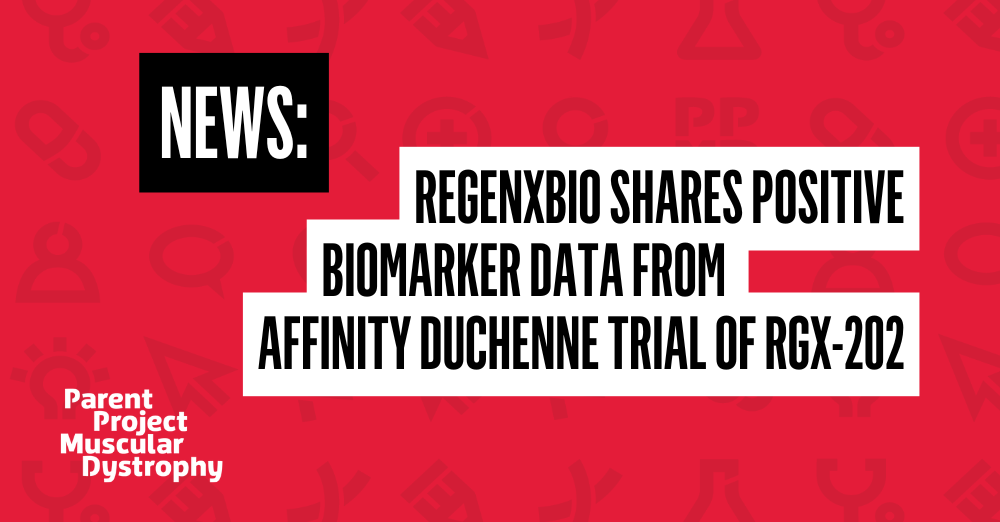
REGENXBIO Inc. has reported new, positive interim data from two additional patients in the Phase I/II portion of the AFFINITY DUCHENNE® trial of RGX-202, an investigational gene therapy product delivering a micro-dystrophin transgene via AAV8 for individuals with Duchenne. According to REGENXBIO, the new data from the age 1-3 cohort builds on the favorable safety and efficacy profile seen in ages 4 and older, reinforcing the potential of RGX-202 to serve a wide age range of individuals.
New biomarker data from two patients who received the pivotal dose of RGX-202 indicates robust expression of RGX-202 micro-dystrophin across all ages. Both patients had biopsies at 12 weeks, the 3 year old patient showed 122% micro-dystrophin expression compared to normal control, and the 7 year old patient 31.5% micro-dystrophin expression compared to normal control. Additionally, results show that RGX-202 is well-tolerated and has a favorable safety profile.
The company indicated that it plans to share additional Phase I/II functional data in the first half of 2025. Additionally, REGENXBIO will continue to advance the pivotal trial towards completing enrollment this year and BLA submission mid-2026.
The Phase 3 (pivotal) portion of this trial is open and enrolling ambulatory boys aged 1 and above with a confirmed diagnosis of Duchenne. The community letter below contains links to learn more about the AFFINITY DUCHENNE® trial.
Read REGENXBIO’s press release here.
Read REGENXBIO’s community letter:
Dear Duchenne Community,
We are pleased to share updates on the Phase 1/2/3 AFFINITY DUCHENNE® trial of RGX-202, REGENXBIO’s
investigational gene therapy for the treatment of Duchenne muscular dystrophy.
The Phase 3 (pivotal) portion of this trial is open and enrolling ambulatory boys aged 1 and above with a
confirmed diagnosis of Duchenne. To learn more, visit regenxbiodmdtrials.com or scan the QR code
below.
New Data from the Phase 1/2/3 AFFINITY DUCHENNE® trial
At the MDA annual scientific conference held last week, Dr. Carolina Tesi-Rocha from Stanford Children’s
Hospital and an investigator in the AFFINITY DUCHENNE® trial presented new biomarker data from the
Phase 1/2 portion of the trial. This included the first microdystrophin data from our cohort for younger
patients, aged 1-3.
- RGX-202 has been well tolerated in 12 patients across both dose levels, with no serious adverse
events or adverse events of special interest, and no myocarditis or myositis reported1, 2.
- The most common drug-related AEs reported are nausea, vomiting and fatigue, all
resolved- The AFFINITY DUCHENNE trial includes a comprehensive, short-course immune
suppression regimen to help mitigate the potential of adverse events.- New biomarker data continues to support consistent robust expression, transduction and
appropriate localization at the sarcolemma (muscle cell membrane) of the RGX-202
microdystrophin across all ages.
- In a patient aged 3 years old, RGX-202 microdystrophin expression was measured at 12
weeks to be 122.3% compared to normal control.- In a patient aged 7 years old, RGX-202 microdystrophin expression was measured at 12
weeks to be 31.5% compared to normal control.- As we previously shared in November 2024, the first five boys dosed in the Phase 1/2 portion of
the AFFINITY DUCHENNE trial showed functional improvements that exceeded available external
natural history controls measured at 9 months (dose level 2) and 12 months (dose level 1).
We plan to share additional Phase 1/2 data, including additional functional data, in the first half of this
year. We plan to submit a Biologics License Application (BLA) under the U.S. FDA’s accelerated approval
pathway in mid-2026.
Clinical Trial Website
Please visit our clinical trial website for AFFINITY DUCHENNE – created as a resource for families, patients
and healthcare providers. To access, visit: regenxbiodmdtrials.com or scan the QR code below.
The website provides information on RGX-202 and the AFFINITY DUCHENNE trial, including key eligibility
criteria, what to expect from participation, and study locations. Information on the AFFINITY BEYOND
antibody testing program is also available.
We thank the Duchenne community, including trial participants and their families, for their continued
support as we work to advance RGX-202 as a potential new gene therapy for Duchenne. Our team
remains committed to helping the community, and we are pleased to share these updates with you. If you
have questions, please contact the patient advocacy team at duchenne@regenxbio.com
With warm regards from the Team at REGENXBIO,
Steve Pakola, MD, Chief Medical OfficerVivian Fernandez, Executive Director, Patient Advocacy



 by: Parent Project Muscular Dystrophy
by: Parent Project Muscular Dystrophy

